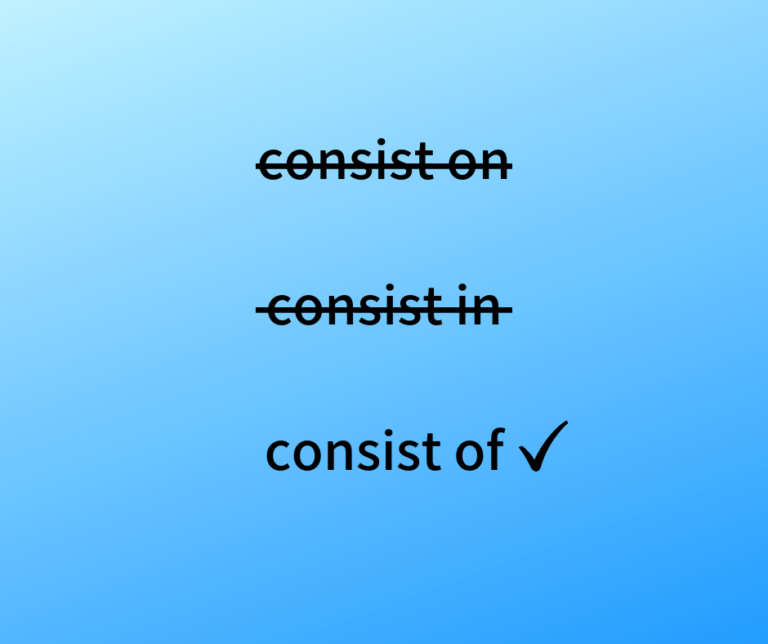5 Commonly Confused Preposition Collocations
Prepositions are tricky. You need to know tons of collocations, and these word combinations often differ from the word combinations in your native language.
Fortunately, most preposition mistakes aren’t the end of the world. If you say “depends of” (a common mistake) instead of “depends on” (the correct collocation), your listener will understand what you mean. No big deal…
But other times, the wrong preposition can communicate something radically different from what you intended.
Here are five examples of commonly confused preposition collocations. For each pair of collocations, changing the preposition significantly alters the meaning.
After you read the article, try the practice exercise.
in the hospital vs. at the hospital
If you are in the hospital, you are receiving medical care from the hospital. You are a patient.
“I don’t remember the accident. I just remember waking up in the hospital.”
“My aunt is in the hospital with pneumonia.”
If you are at the hospital, you are physically on the premises of the hospital, but not a patient.
“In college, Charlene volunteered at the local hospital.”
“I’m at the hospital visiting my aunt.”

on time vs. in time
On time is the opposite of late. If you are on time, it means you do something before an agreed/established time.
“If you pay your rent on time, your apartment complex won’t fine you.”
“It’s important that we finish this project on time and under budget. We want to make a good impression on these clients.”
“The best thing about soccer games is that they start on time. If the game is scheduled to start at 7:05, it always starts at exactly 7:05.”
If you are in time for something, it means you didn’t miss your chance to do something.
“You’re just in time for dinner. Have a seat and I’ll get you a plate and some silverware.”
“Fortunately the accident didn’t cause any fatalities. The paramedics were able to get the victims to the hospital in time.”

shout to vs. shout at (and similar examples)
If you shout to someone, you raise your voice so that the person can hear you.
“My friend shouted to me from across the room, but I couldn’t hear him over the music.”
“Sometimes the prisoners shout to inmates in other cells.”
If you shout at someone, you raise your voice because you are angry with that person.
“I lost my temper and shouted at a telemarketer yesterday.”
“Don’t shout at me! I’m doing the best I can.”

The synonyms yell and scream also follow this pattern.
Note that the verb throw follows a similar pattern. If you throw a ball to someone, you want that person to catch the ball. If you throw a ball at someone, you want to hit that person with the ball.
“The quarterback threw the ball to his wide receiver.”
“In the winter, my friends and I would always throw snowballs at each other after class.”
on the way vs. in the way
On the way means that something is either (a) in progress/transit or (b) can be found along the route to somewhere.
“I received an email informing me that my package is on the way.”
“Let’s stop for lunch on the way to the beach.”
“I’ll give you a ride home. It’s on my way.”
In the way means that something is an obstruction—it prevents something from happening.
“I’m trying to get some work done, but all these meetings keep getting in the way.”
“Am I in your way? Do you need me to move so you can get by?”
Note that we often use possessives with these expressions (on my way, in his way, etc.).

substitute with vs. substitute for
What you replace is substituted with something else.
“The butter in this recipe can be substituted with margarine or olive oil.”
“The burgers come with french fries, but our customers can substitute the fries with a salad.”
What you replace something with is substituted for the original item.
“In this recipe, margarine or olive oil can be substituted for butter.”
“The burgers come with french fries, but our customers can substitute a salad for the fries.”
“Thomas Edison said that there is no substitute for hard work.”

.
Try the short practice activity that goes with this article.
Also, for more practice with prepositions, see the Practice Exercise section of the site.






